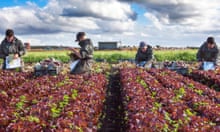In the past couple of decades managing directors of the International Monetary Fund have fallen into two categories: those that have had personal difficulties and survived and those that have had personal difficulties and stepped down.
Kristalina Georgieva, the current IMF boss, is one of the former. The question of whether she instructed for a report to be doctored to put China in a more flattering light when she was vice-president of the World Bank has turned into a saga involving whistleblowers, an external report, lengthy grillings by the IMF board and accusations of a dirty tricks operation mounted by conservative forces in Washington.
As a former European Commission vice-president, Georgieva knows how to look after herself. She has received the backing of the IMF board and comfortably batted away questions about her conduct when questioned by journalists at the IMF’s annual meeting. She will expect memories to be as short as they were when her immediate predecessor, Christine Lagarde, was hauled through the French courts five years ago. In all likelihood, she will be proved right.
That said, it is a bit of a pyrrhic victory for Georgieva and the institution she leads. Public trust in the IMF will be diminished. Reputational damage will be permanent even if it is modest.
The row has forced the World Bank to suspend publication of its Doing Business report, which is no great loss given its bias in favour of deregulation, making social protection less generous and removing minimum wage protection for workers.
It has also prompted calls for an end to the “gentleman’s agreement” whereby the US chooses the president of the World Bank while a European gets to run the IMF. This arrangement, which has existed since the two organisations were created at the end of the second world war, is an anachronism and anything that hastens its end is welcome. Had the selection process been open and based strictly on merit, neither Georgieva nor David Malpass, the president of the World Bank, would be doing their current jobs.
Early rate rise looks increasingly unlikely
Recent City speculation that the Bank of England may raise interest rates before the year’s end looks wildly premature in the light of the recent performance of the economy.
The picture is clear. Activity rebounded fast in the spring as lockdown restrictions eased, but the pace of recovery has since slowed. In August, according to the Office for National Statistics, output rose by a modest 0.4%, while the previously reported 0.1% rise in July was revised down to a 0.1% fall.
Put in context, that was the first monthly drop in gross domestic product since the start of the pandemic, outside a lockdown period. The “pingdemic”, which forced about 1 million people to stay at home, was largely to blame.
When it last produced forecasts for the economy two months ago, the Bank said it was expecting growth of 2.1% in the third quarter of this year, but it would now take an increase in national output of 2.2% in September for that to happen.
That looks out of the question given the bottlenecks in the supply chain that affected the economy last month and the damage caused to consumer and business confidence from rising energy prices. Trade, with imports rising in the latest three months while exports have been falling, will be a drag on growth.
As the gridlock at Felixstowe shows, a lack of HGV drivers will continue to have an impact in the fourth quarter – a period when the economy will have to do without the support provided by the government’s furlough scheme and higher universal credit payments.
In short, the GDP numbers act as a useful corrective to unemployment figures released earlier this week showing record job vacancies and payrolls back to pre-crisis levels. Andrew Bailey, the Bank’s governor, talked recently of the “hard yards” to come for the economy. The Bank needs to ensure it doesn’t make them even harder.











